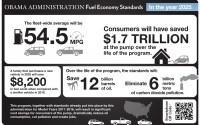 I've said it before. Every political crisis is, in fact, an economic one. It's caused by artificial scarcity, the capture of political systems by a faltering economic order, and driven by that order's attempt to maintain profits through that political control.
I've said it before. Every political crisis is, in fact, an economic one. It's caused by artificial scarcity, the capture of political systems by a faltering economic order, and driven by that order's attempt to maintain profits through that political control.
The last such crisis was collectively called the 1960s. When I began studying it, five years ago, I thought like most other people that it was a social upheaval, to which the Nixon Thesis responded with an assumption that hippies, their enablers, and in time all Democrats are illegitimate. It's this Thesis that dominates Republican politics still – hatred and fear of “The Other,” the other being either the Democrat of the moment or any conservative who may stray from the fold.
In fact it wasn't that at all. The crisis was an artificial scarcity of productivity. Manufacturers had reached the limit of man-machine efficiency, and the job of organizing large manufacturing had become an enormous financial burden, with armies of secretaries, clerks and middle managers filling office complexes around the country.
The answer would be the rise of technology, which created artificial brainpower to drive productivity forward, as well as gigantic new opportunities in media of all sorts. What the Nixon era was about, more than anything, was turning economic policy away from the old order, the old scarcity, toward the new abundance.
Central to this was the Nixon Shock, which came almost exactly 40 years ago. At a stroke, America abandoned the gold standard, and imposed wage and price controls on the economy.
 Fiat currency, as opposed to currency backed by a metal like gold or silver, enabled the creation of vast new stores of capital for the technology and media industries. This was the central event in Ron Paul's launching his political career – he was first elected in 1972 specifically to oppose this policy.
Fiat currency, as opposed to currency backed by a metal like gold or silver, enabled the creation of vast new stores of capital for the technology and media industries. This was the central event in Ron Paul's launching his political career – he was first elected in 1972 specifically to oppose this policy.
What the Nixon Shock recognized – what Paul did not then and still does not recognize – was that this generation's economics are naturally deflationary, not inflationary. As technology created new abundance in the form of processing power, a gold standard would have created a deflationary spiral, which is far worse in its economic implications than an inflationary one. (Check your history of the Depression if you don't believe me.)
Of course, every generation's solution becomes the next one's crisis. Each time we blow through an artificial scarcity, we create the means by which a new one might be created.
In the case of our time, that's energy. Caveman energy, energy created by pulling stuff from the Earth and burning it, is how we've powered what we have called “civilization” from the time of the Babylonians and the first Chinese Emperors. But it's not civilized. It's merely the organization of what cavemen did, in the end.
Civilization is based on farming, on creating abundance systematically, and of harvesting that abundance. There is no energy shortage, in fact, only an artificial scarcity engineered by the extraction industries, which want more than anything else to maintain the value of their “proven reserves,” which keeps going up, creating an incentive for them to withhold current production and keep prices rising.
We can't grow so long as that's the reality.
 Thus, the Obama shock. It's not what you expected. No, this has nothing to do with the debt ceiling debate. Reporters in Nixon's time focused on the wage-and-price controls, which were temporary, and really ignored the key in their time, just as reporters today are focusing on the budget when the real story is technology.
Thus, the Obama shock. It's not what you expected. No, this has nothing to do with the debt ceiling debate. Reporters in Nixon's time focused on the wage-and-price controls, which were temporary, and really ignored the key in their time, just as reporters today are focusing on the budget when the real story is technology.
The Obama shock is a doubling of the average fuel economy for all cars and trucks produced by American companies, by 2025, to 54.5 miles per gallon. Those who think “that's impossible” should know that's the average gas mileage of a Toyota Prius. So a decade from now, the average car will be a Prius, and half will have improved from that – they might be electric, or they might use fuel cells.
All these technologies exist now. Hybrids are common. Fuel cells exist across our electric grid. The Chevy Volt and Nissan Leaf are both on our roads. Idiots may argue the target is too high, that it's “government intervention in the market,” but in fact it's a very modest target, one that sets a direction.
 Right now, Motor Trend has 3 pages of hybrid offerings for the 2012 model year, which is now starting. Most don't come close to the new standard – some are hybrid in name only. Some Detroit models are already half-way to the new standard, including the Ford Focus and Chevy Cruze.
Right now, Motor Trend has 3 pages of hybrid offerings for the 2012 model year, which is now starting. Most don't come close to the new standard – some are hybrid in name only. Some Detroit models are already half-way to the new standard, including the Ford Focus and Chevy Cruze.
What the President has done is to unleash innovation. Combine what he's done here with the money to be made in our cheapest renewable energy – efficiency – and with the continuing expansion of solar, wind, geothermal and biomass industries – and you begin to see a way out of our present situation.
And that's important to note, too. In 1971 the big innovation in computing was an 8-inch floppy diskette from IBM. A DEC PDP-10 was state of the art, with a total main memory capacity of 1 kilobyte. (That's a fraction of the length of this story.) The first Intel 4004 chip was delivered in 1971.
While computing grew along one main track, energy harvesting consists of several industries, each growing very quickly. There's solar, which is closest in concept to computing. There's wind, which has been the fastest-growing segment until now. There's biomass, still controversial because it remains in the “iron age” of using food crops like corn and sugar cane. And there's geothermal, which remains in a “stone age” requiring drilling thousands of feet deep and filling the hole with water, that's circulated through pumps to extract the Earth's heat.
There are, have been, and will be breakthroughs in all these areas. And there are enormous incentives for growth in all of them. There are great fortunes here, waiting to be made. And when renewables become the cheap energy, they're just going to get cheaper-and-cheaper.
The Obama Shock is a guarantee of that growth.









